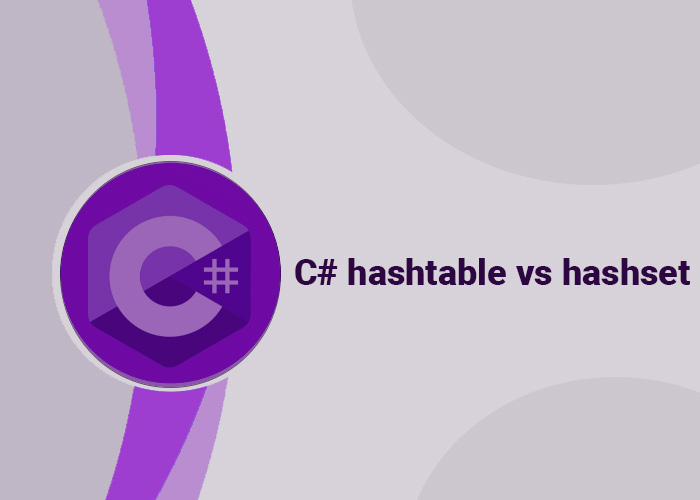Generic Hashtable in C#
In C#, a traditional Hashtable is a non-generic collection that stores key-value pairs as objects, leading to type safety issues and potential runtime errors due to boxing/unboxing. With the introduction of generics, a more robust, type-safe alternative became available in the form of Dictionary<TKey, TValue>. This article discusses using a generic dictionary as an alternative to a generic hashtable, providing a safer and more efficient solution.
Why Use Dictionary<TKey, TValue> Over Hashtable?
- Type Safety: Provides compile-time type checking, reducing runtime errors.
- Performance: Eliminates boxing/unboxing for value types.
- Flexibility: Supports a wide range of key-value types.
- Enhanced Methods: Offers additional features and methods like TryGetValue.
Example: Using Dictionary<TKey, TValue> Instead of Hashtable
Basic Operations
Here's how you can create and use a Dictionary<TKey, TValue> to achieve functionality similar to a generic hashtable:
using System;
using System.Collections.Generic;
public class GenericDictionaryExample
{
public static void Main()
{
// Create a generic dictionary with string keys and integer values
Dictionary<string, int> population = new Dictionary<string, int>
{
{ "USA", 331002651 },
{ "India", 1380004385 },
{ "China", 1439323776 },
{ "Brazil", 212559417 }
};
// Add a new key-value pair
population["Russia"] = 145912025;
// Retrieve a value using the indexer syntax
Console.WriteLine($"Population of India: {population["India"]}");
// Safely retrieve a value using TryGetValue
if (population.TryGetValue("China", out int chinaPopulation))
{
Console.WriteLine($"Population of China: {chinaPopulation}");
}
else
{
Console.WriteLine("Key not found.");
}
// Iterate through all key-value pairs
Console.WriteLine("\nList of all populations:");
foreach (KeyValuePair<string, int> kv in population)
{
Console.WriteLine($"{kv.Key}: {kv.Value}");
}
}
}
Key Advantages Over Hashtable
- Type Safety: Compile-time type checking ensures that the correct data types are used.
- Performance: Reduces performance overhead by avoiding boxing/unboxing of value types.
- Null Handling: Supports null values while ensuring non-null keys.
Best Practices for Dictionary
- Capacity Management: Set an appropriate initial capacity to minimize resizing overhead.
- Hash Codes: Use keys that implement a stable GetHashCode to ensure consistent behavior.
- TryGetValue: Prefer TryGetValue for safe key lookups without exceptions.
Conclusion
Using Dictionary<TKey, TValue> as a generic hashtable in C# ensures type safety, better performance, and greater flexibility. Understanding the key features and best practices of dictionaries will help you design efficient data structures tailored to your application's needs.





